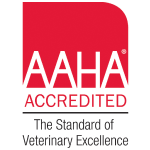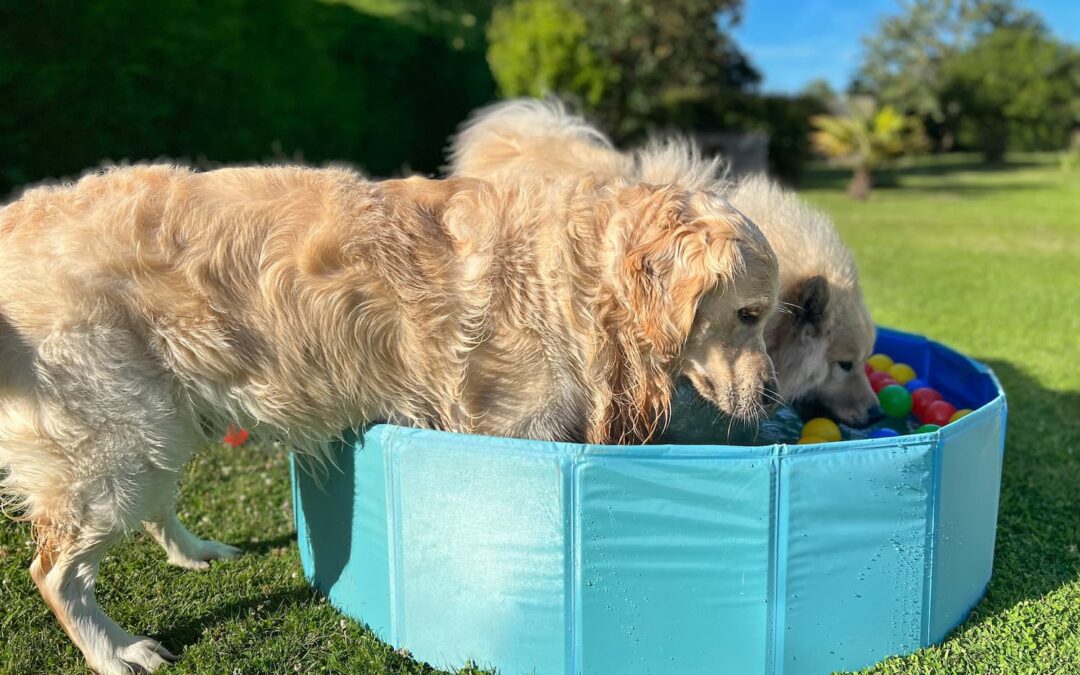Hot days in Minneapolis, MN can feel endless—and while many of us can escape to the A/C, our furry friends often rely on us to help them stay cool and safe. As the temperatures rise, so do the risks of overheating, dehydration, and exposure to summer pests like ticks and mosquitoes. Whether you’re heading to the lake, enjoying backyard barbecues, or taking walks around the neighborhood, it’s important to know how to protect your pet from the heat.
Let’s explore some easy, practical ways you can keep your pets safe and comfortable all summer long.
Know the Signs of Heatstroke in Pets
Heatstroke can sneak up fast, especially on warm, humid days. Dogs and cats don’t sweat like humans—they pant to regulate body temperature, but panting alone might not be enough in extreme heat.
Watch for Signs of Heat Exhaustion:
- Heavy panting or difficulty breathing
- Drooling or bright red gums
- Weakness, lethargy, or collapse
- Vomiting or diarrhea
- Elevated heart rate
Certain pets are more prone to heatstroke than others. Brachycephalic breeds (like bulldogs and pugs), senior pets, puppies, and overweight animals have a harder time regulating heat. If your pet shows any signs of overheating, bring them into a cool environment immediately and contact us for guidance. Veterinarians can help assess your pet’s health and recommend ways to avoid heat-related emergencies.
Keep Pets Cool at Home
It doesn’t take much to help your pet stay cool indoors or in the backyard. Simple steps like ensuring they always have access to cool, clean water and a shady spot can make a big difference. Try these cooling ideas:
- Set up a fan or air conditioning in their favorite resting area.
- Use cooling mats or damp towels for them to lie on.
- Freeze low-sodium broth or pet-safe fruit like blueberries into ice cubes.
- Make sure outdoor playtime happens in shaded areas.
- Add a small kiddie pool with a few inches of water for supervised splash time.
For long-haired breeds, ask about appropriate summer grooming. While shaving is rarely recommended, a light trim can reduce insulation without risking sunburn. Every coat type is different, and our team at South Hyland Pet Hospital can offer grooming guidance tailored to your pet.
Choose the Right Time for Walks
Midday sun can heat up sidewalks to dangerous levels. A quick test: place the back of your hand on the pavement. If it’s too hot for your skin, it’s too hot for paws.
Tips for Safe Walks:
- Walk early in the morning or later in the evening.
- Stick to grassy or shaded paths when possible.
- Carry a portable water bottle and collapsible bowl.
- Try paw wax or summer booties to protect sensitive pads.
- Watch for signs your pet needs a break, like excessive panting or slowing down.
Even athletic dogs need to slow down when the temperatures rise. Encourage shorter, more frequent walks or mix in indoor play on extremely hot days. Puzzle feeders and scent games can burn mental energy without the risk of overheating.
Never Leave Pets in a Parked Car
Even with windows cracked, a parked car can reach deadly temperatures in just minutes. It only takes 10 minutes on a warm day for the temperature inside to rise over 100°F.
Leaving your pet in a vehicle can lead to heatstroke and even legal consequences in some states. If you’re running errands, it’s best to leave your pet at home where it’s cool and safe.
Some newer vehicles offer pet modes or remote A/C, but even those can malfunction or be misunderstood by passersby. Err on the side of caution and avoid car waits altogether.
Hydration and Nutrition Matters
Just like humans, pets need extra hydration in the summer. Clean, freshwater should always be available, both indoors and outside. If your pet seems uninterested in drinking, consider adding water to their food or offering pet-safe frozen treats.
Hydration Tips:
- Use ceramic or stainless-steel bowls—plastic can get warm quickly.
- Offer multiple water stations around the home.
- Switch to wet food or add broth to their meals (low-sodium and pet-safe only).
- Consider a pet water fountain to encourage picky drinkers.
Proper hydration helps regulate body temperature and keeps your pet’s organs functioning properly. Pets that don’t drink enough water may be at greater risk of urinary issues and overheating.
Watch Out for Fleas, Ticks, and Mosquitoes
Warm weather brings more than just sun—it also brings a spike in parasite activity. Fleas, ticks, and mosquitoes can transmit serious diseases to pets, including Lyme disease and heartworm.
Preventative Care Is Your Best Defense:
- Use a year-round flea and tick preventative.
- Apply monthly heartworm medication.
- Check pets for ticks after outdoor time, especially near wooded or grassy areas.
- Ask your vet about vaccines for tick-borne diseases.
South Hyland Pet Hospital can recommend the safest, most effective parasite preventatives based on your pet’s age, weight, and lifestyle. You can shop our online pharmacy for flea and tick preventatives, heartworm medication, and other essentials to keep your pet protected all summer long.
For more info, check out our page on flea and tick prevention services.
Special Care for Seniors, Puppies, and Short-Nosed Breeds
Some pets need extra TLC in the heat. Older pets, very young animals, and breeds with short snouts (like boxers, pugs, and bulldogs) are more prone to overheating and respiratory issues.
If you have one of these at-risk pets:
- Limit outdoor time, especially during the hottest parts of the day.
- Keep indoor spaces well-ventilated and cool.
- Avoid activities that elevate heart rate in warm temperatures.
- Use cooling bandanas, fans, or vests made specifically for pets.
- Schedule regular vet visits to monitor respiratory or heart conditions.
Sun Safety and Skin Care
Just like people, pets can get sunburned—especially those with light-colored fur or exposed skin on their nose, ears, or belly.
Protective Tips:
- Apply a pet-safe sunscreen to vulnerable areas (never use human sunscreen).
- Avoid peak UV times between 10 a.m. and 4 p.m. for outdoor activities.
- Provide shaded areas or UV-blocking pet tents for backyard lounging.
If your pet spends a lot of time outside, don’t hesitate to talk to our veterinary team about long-term skin protection and warning signs for sun damage.
Enjoy Summer—Safely
Summer can be a fun and active time for pets and their people, as long as the heat doesn’t get in the way. With a few simple precautions, you can help your pet stay comfortable, hydrated, and healthy through even the hottest Minneapolis days.
If you’re ever unsure about your pet’s symptoms or need help choosing the right summer products, our team at South Hyland Pet Hospital is here to help. We’re happy to answer questions, provide wellness exams, and guide you toward the safest solutions.
Contact us today or check out our full selection of summer care products in our online pharmacy. Let’s make this season safe and enjoyable—for every pet.



